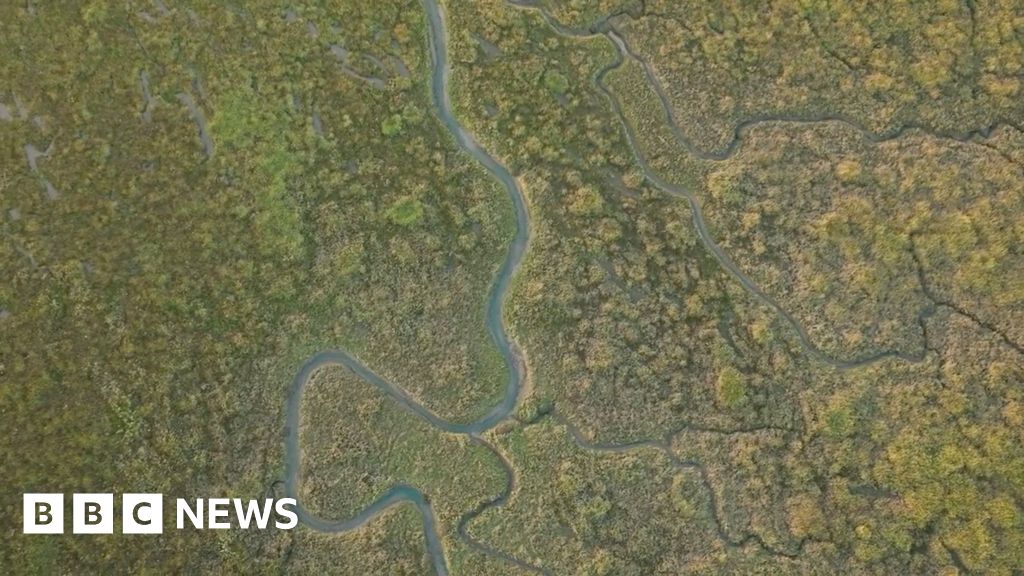Science correspondent, BBC News
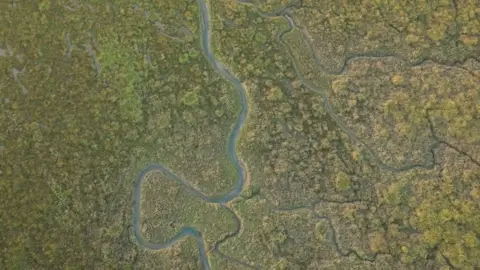 WWF
WWFThe UK’s saltmarshes are vital “sinks” that lock away climate-warming greenhouse gases in layers of mud, according to a new report from WWF.
Much of the UK’s saltmarshes have been lost to agriculture but the charity says they are unsung heroes in nature’s fight against climate change.
It is now calling for these muddy, tidal habitats to be added to the official UK inventory of how much carbon is emitted and how much is removed from our atmosphere every year.
This formal recognition could, it hopes, provide more of an incentive to restore and protect more of these sites.
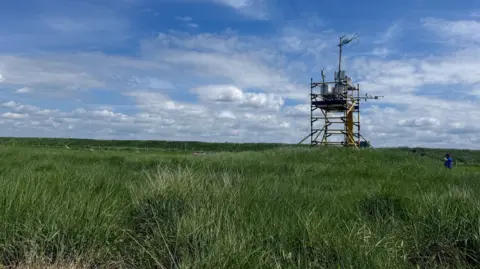 Victoria Gill/BBC
Victoria Gill/BBCWorking with researchers from the UK’s Centre for Ecology and Hydrology, a WWF team installed solar-powered greenhouse gas monitoring stations on Hesketh Out Marsh, a saltmarsh in North-West England that has been restored and is managed by the RSPB.
Analysing gases in the air flowing around the marsh – over the course of a year – revealed how plants there “breathe in” more carbon dioxide in the summer than they release in winter.
These new findings build on previous studies that have measured the amount of carbon in the marshland’s mud.
To carry it out, the team fixed analytical equipment to a sturdy 2.5m tall tower made of scaffolding poles. The site is regularly flooded by the tide, so the tower has kept their kit safe from salt water and debris.
With WWF’s ocean conservation specialist, Tom Brook as our guide, we waded through the thigh-high grass to visit the site of the experiment.
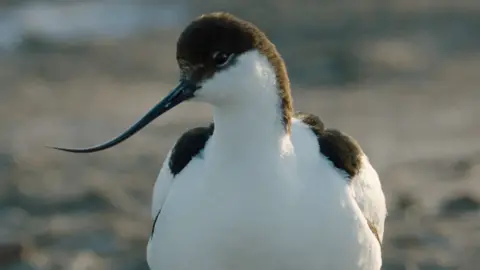 RSPB
RSPBAt low tide, the sea is not visible beyond the expanse of grassland, but the area is littered with driftwood, some plastic waste and there is even a small, upturned boat nearby.
“The plants grow so quickly here in spring and summer that they almost grow on top of each other – layering and decomposing,” Tom said. “That captures carbon in the soils. So while we’re typically taught about how trees breathe in carbon and store that in the wood, here salt marshes are doing that as mud.
“So the mud here is just as important for climate mitigation as trees are.”
WWF has published its first year of findings in a report called The Importance of UK Saltmarshes. Unusually, this been co-published with an insurance company that is interested in understanding the role these sites have in protecting homes from coastal flooding.
The UK has lost about 85% of its saltmarshes since 1860. They were seen as useless land and many were drained for agriculture.
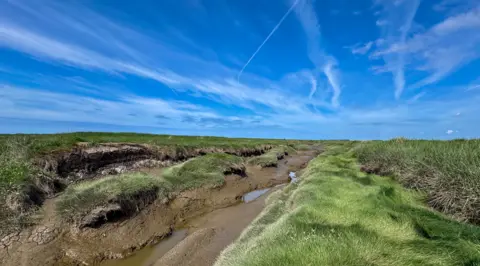 Victoria Gill/BBC News
Victoria Gill/BBC NewsHesketh Out Marsh has been restored – bought by the wildlife charity RSPB and re-flooded by tide. Now, in late spring, it is teeming with bird life. A variety of species, including avocets, oyster catchers and black-tailed godwits, probe the mud for food and nest on the land between lagoons and streams.
The researchers hope the findings will help make the case to restore and protect more of these muddy bufferzones between the land and the sea.
“The mud here is so important,” explained Alex Pigott, the RSPB warden at Hesketh Out Marsh. “It’s is like a service station for birds.”
With their differently shaped bills – some ideal for scooping and some for probing – marshland birds feed in the tidal mud.
“We know these sites act as a natural flood defences, too and that they store carbon,” said Ms Pigott. “Any any of these habitats that we can restore will be a big win for nature.”
